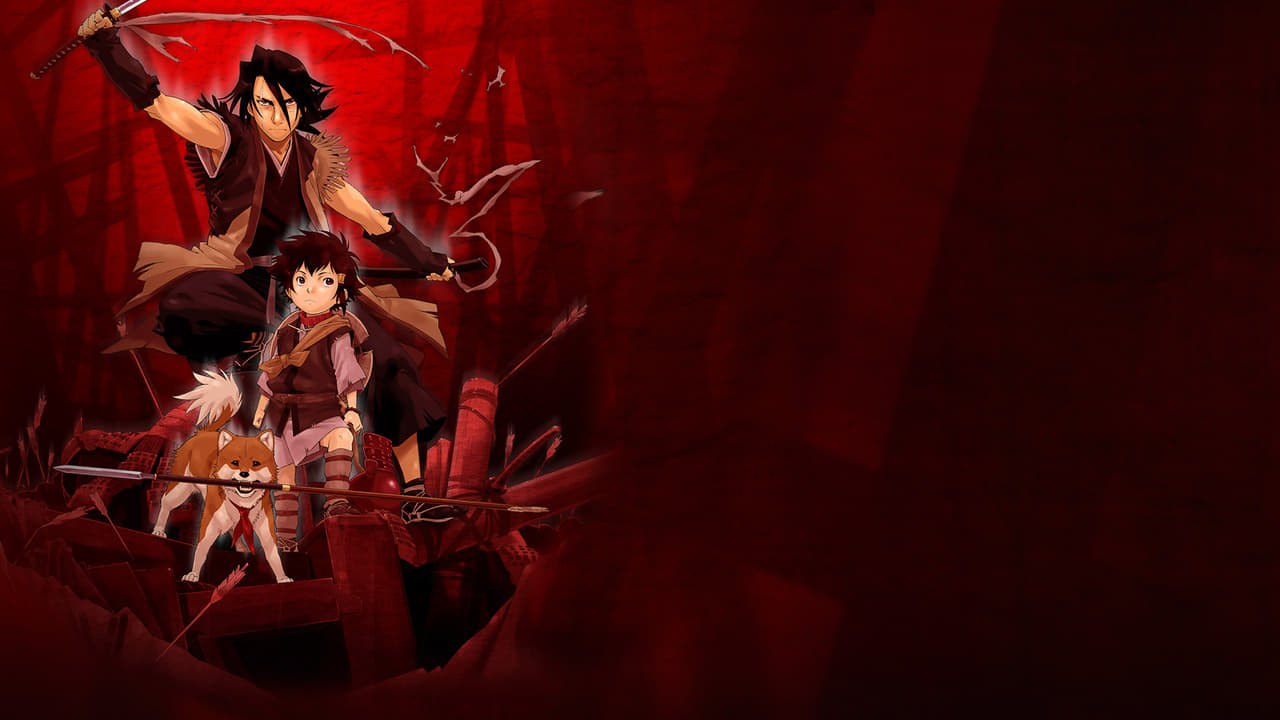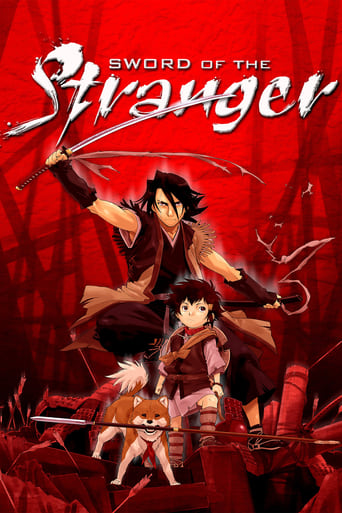

Action-Adventure movieA nameless ronin is caught in the middle of a young boy escaping from Chinese Assassin's - who want to use the boy as a blood sacrifice towards immortalityBut really, it's a battle between the nameless ronin and a blond-haired bloodthirsty assassin --- fore the nameless ronin is the greatest challenger he's ever faced10/10 Classic movie - action-packed , flies by in no-time
... View MoreThis is an amazing piece of Animation. The colors, music, storyline and effects were on the top of their tier. This movie reshaped the way I look at animation and encouraged me to search for more pieces like it. This is personally the greatest Samurai focused animation that I've seen.Although the story sounds a bit 'out there' it still hits all the right notes. The connection that the characters have with one another is astonishing, this movie literally compels you to feel sympathy, hate, love and longing for the characters!I sincerely hope that you watch this movie for it is an under deserved masterpiece!
... View MoreI found this jewel by pure luck. I'm a bit shocked that it's not mentioned more! The plot is maybe not the most amazing one, but the directing overcomes it. The music and the animation are delightful, the combat scenes are just so epic that you shouldn't miss it! The land, people and the whole atmosphere gives you a view of what should have been samurais in their times. I like this more realistic view than what the common animation shows serve nowadays. I did put a 9 and not a 10 just because I personally think they could have worked a bit more on the plot and could have developed the last minutes a bit more.... maybe because I didn't't wish it to end so fast! If you do like animations like "Samurai Shamploo", you should go for "Sword of the Stranger".
... View MoreThis is, without doubt, one of the greatest animated movies I have ever seen. The animation is superb, the fights are choreographed perfectly and the story is second-to-none. However, to fully appreciate the story's meaning, you need to understand the philosophical context of the film. The following review is a brief summary of the philosophical content and persuasions that went into this movie.First, this story is - as the title of this review suggests - a praise of Western Civilization. Throughout the story, we, the viewers, are bombarded with cultural comparisons between two main ethnic groups: Westerners (i.e., represented by the two Western characters, Lord Rarou and Nanashi) and Easterners (represented collectively by the Chinese and Japanese lords/warriors). The two main characters - Lord Rarou and Nanashi - represent two aspects of Western Civilization: Individualism and Traditional (Western) Morality. On the other hand, the Japanese and Chinese represent two aspects of Eastern Civilization (which are antithetical to the two aforementioned Western precepts): Collectivism and Immorality.The first Westerner - Lord Rarou - represents the first aspect of Western Civilization: Individualism. Lord Rarou is a Westerner (presumably raised in China) who is a member of the Chinese warrior class and, as such, owes his complete allegiance to the (Chinese) Ming Dynasty. All the Chinese in this movie are shown as subservient to the singular will of the Ming Emperor. Furthermore, all the Chinese are vassals of the Emperor, unable to disobey his will and moral authority. However, Lord Rarou is unlike his Chinese counterparts in that he is only concerned with finding someone who can match his skill is swordsmanship. He repeatedly shows his disdain for Chinese practices (e.g., taking opium to ease pain) and for the emperor in general. Whereas the rest of the Chinese warriors are dependent upon the will and whims of the nobility, Rarou chooses to follow his own beliefs and proclivities. As you watch this film, compare Lord Rarou's character to that of his Chinese counterparts.The second Westerner (and the main protagonist) - Nanashi - represents the second Western philosophical precept: Traditional Morality. Whereas Nanashi's Japanese counterparts are only concerned with baser pleasures (e.g., power, lust, wealth, etc.), Nanashi willingly risks his life for the sake of a boy named Kotaro, whom he befriended on his journey through the Akaike province. Compare Nanashi's noble character with that of the rest of the Japanese. Whereas the latter group seeks only petty, ephemeral conquests, the former strives to do what is right and just.Again, this movie should be viewed in the context of comparing the two aforementioned cultural groups. Only then will one enjoy (and understand) the story's meanings.
... View More